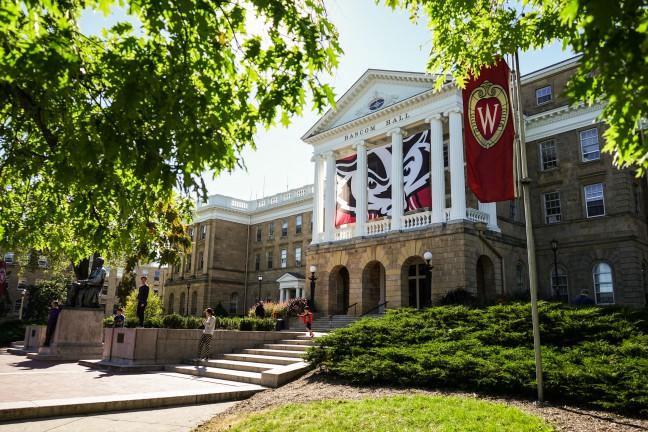The University of Wisconsin and UW System are implementing initiatives to improve campus’ racial climates, but some experts harbor concerns.
The UW System’s initiative, Fluent, requires all UW schools to develop cultural competency trainings, UW System spokesperson Stephanie Marquis said in an email to The Badger Herald.
Chancellor Rebecca Blank said in a press call UW is implementing several initiatives to address the campus climate — all of which will help meet the requirements of Fluent. The initiatives will include new trainings for incoming students, teaching assistants, house fellows, staff and faculty, according to the fall 2016 Campus Climate Progress Report announced late August.
The new UW cultural competency training that is specifically for incoming students is called “Our Wisconsin.” Joshua Johnson, chair of the UW Hate and Bias Incident Team, said the program will pilot in four different residence halls. The goal is to have about 1,000 new students participate, then evaluate their feedback to see how effective the program is in promoting inclusivity, Johnson said.
“People from no matter what background should feel like this is their campus just as much as anybody else’s,” Johnson said.
Marquis said Fluent was developed based on feedback from more than 5,000 stakeholders across Wisconsin, who said employees need to be able to work as a team with those from different backgrounds.
But some experts question whether cultural competency programs like “Our Wisconsin” are actually effective.
Mitchell Campbell, UW psychology graduate student, said many of these programs are actually counterproductive. Students tend to leave a diversity training with more negative attitudes toward those diverse groups than before they went, Campbell said.
He said the university won’t be able to say conclusively that students who have gone through the program have a more positive attitude toward different groups.
UW psychology professor Markus Brauer said in an email to The Badger Herald before these programs are implemented, the university should find proof they’re actually effective. Brauer said there is no evidence that diversity trainings lead to lasting changes in behavior.
But Blank said the university is carefully considering which programs to implement.
“We’re trying very hard to use the research literature about what do effective programs consist of,” Blank said.
Brauer said he is also not convinced the programs will be evaluated rigorously enough to determine whether or not they will have an impact. For these training programs to truly be effective, Brauer said students’ perceptions of the campus climate would need to change, there would need to be friendships across cultural divides and minority groups would need to experience increased acceptance and inclusion.
Campbell said many companies are more interested in being able to say they are doing something to address the diversity than actually finding solutions to the problem.
Willie Ney, executive director at the Office of Multicultural Arts Initiatives, said he thinks cultural competency trainings are helpful, but for them to be effective, leaders who have actually experienced discrimination need to be at the forefront of the initiatives.
“Those who have been on the trenches and the front lines of diversity work have to be at the center so it’s not just some faculty member who has done research on cultural competency,” Ney said.
Yet Campbell and others remain optimistic. Though he has skepticisms, Brauer said he is pleased the university is taking action to address the campus climate. Ney said there are “never going to be enough” efforts to address campus climate and hopes the new initiatives will have lasting effects.
Though there are some doubts, Campbell said “Our Wisconsin” and Fluent appear to be a step in the right direction for improving campus climate and opening up a dialogue.
“The tension that comes into play is that we want this program to be fully assessed so that at the end of it we can make specific and strong recommendations about what we should be doing in the future,” Campbell said.
Emily Hamer contributed reporting to this article.
Correction: A previous version of this article incorrectly stated that Mitchell Campbell was hired to assess and evaluate the effectiveness of “Our Wisconsin.” The Badger Herald regrets this error.


